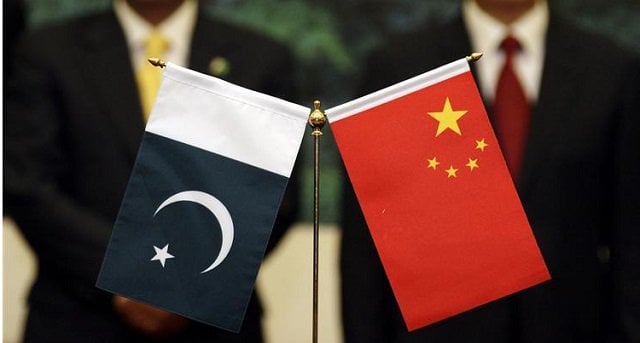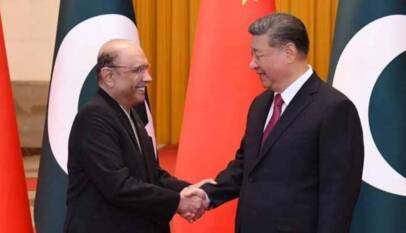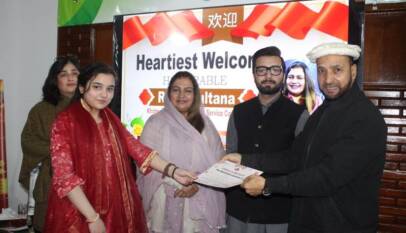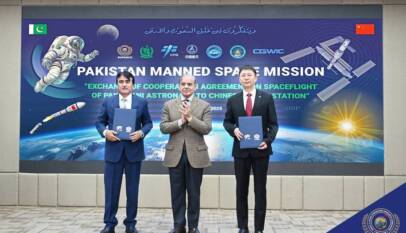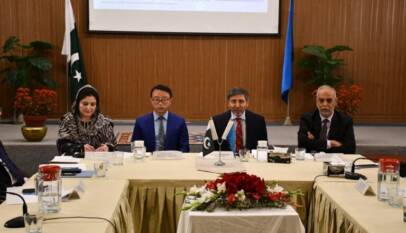Chinese Health Leader Ma Jian Calls for Enhanced Pakistan-China Medical Cooperation
Pakistan’s healthcare sector is witnessing rapid growth, with China exploring significant opportunities in medical tourism, according to Ma Jian from the Sichuan Liaison Office of the China-Pakistan Business Council. Speaking at the 2024 World Medical Tourism and Global Healthcare Forum in Haikou, he highlighted China’s advanced medical technologies, traditional Chinese medicine (TCM), and innovative therapies like stem cell and gene treatments, which attract international patients. Ma Jian emphasized the potential for collaboration between Pakistan and China in medical services and pharmaceuticals, while stressing the need for streamlined legal and visa frameworks to enhance cross-border healthcare experiences.
ISLAMABAD, Sep 28 : Pakistan’s healthcare sector is rapidly evolving, with China eyeing significant opportunities to tap into its growing demand for medical tourism, said Ma Jian, representative of the Sichuan Liaison Office of the China-Pakistan Business Council.
Speaking at a roundtable dialogue on ‘Cross-Border Medical Tourism’ as part of the 2024 World Medical Tourism and Global Healthcare (Boao) Forum (WMTF) recently held in the picturesque Chinese city of Haikou, he highlighted the unique blend of traditional Chinese medicine (TCM) and modern medical practices offered by China, particularly Hainan, as a prime destination for Pakistani patients seeking world-class treatments at competitive prices, China Economic Net reported on Saturday.
“China boasts advanced medical technologies, groundbreaking drugs and a rich heritage of traditional medicines,” Ma Jian emphasized.
He cited China’s biotechnology innovations in stem cell therapy for anti-aging and chronic degenerative diseases, as well as immune cell and gene therapies for cancer, as world-class offerings that hold exceptional value for international patients.
The global recognition of TCM is on the rise, and Ma Jian sees immense potential in attracting Pakistani patients seeking alternative or complementary therapies. “There is a growing presence of Chinese medicines in Pakistan, with products like Huoxiang Zhengqi Liquid and Lianhua Qingwen capsule already approved and proving their efficacy in treating various conditions,” he added.
He noted that the global market for medical tourism is colossal, generating over US$600 billion in revenue last year alone. However, he acknowledged that collaboration between Pakistan and China in this sector is still in its infancy. “There is ample room for growth, especially in medical services and pharmaceuticals,” he stressed.
Ma Jian emphasized the need to expand the scope of treatments offered in Pakistan’s TCM clinics, including hot compresses, physiotherapy, and massage therapies. “This will provide Pakistani patients with a wider range of options and enhance their overall healthcare experience,” he added.
In the realm of pharmaceuticals, China’s advancements in biotechnology and traditional medicines present numerous opportunities for Pakistani enterprises. “By leveraging China’s expertise, Pakistani companies can introduce innovative products and treatments to their market, thereby improving healthcare outcomes and access,” Ma Jian explained.
To facilitate seamless cross-border healthcare experiences, he underscored the importance of legal frameworks, streamlined visa procedures, and improved services, particularly in English proficiency. “As we receive increasing inquiries from Pakistani patients seeking treatments like rehabilitation in China, addressing these issues becomes even more crucial,” he concluded.
Chinese company, NEVs begins vehicles’ deliveries in Pakistan’s major cities
China’s BYD, a global leader in New Energy Vehicles (NEVs), and Pakistan’s Mega Motor Comp…



